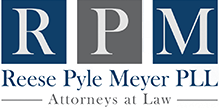Why You Shouldn’t Write Your Own Will
by: Lee D. Heckman 
You should not write your own Will, even today with the prevalence of easy-to-use software and fill-in-the-blank forms. This article identifies some common problems with “do-it-yourself” (DIY) Wills and why it’s better to consult with a good estate planning attorney instead.
The biggest problem with drafting your own Will is that you’re creating a legal document without any legal advice. This is true whether you’re drafting your Will from scratch, using a form, or using hi-tech software “backed by an army of legal professionals.” Your Will should not just be a piece of paper. It should be the culmination of your estate plan. It should be the result of a back-and-forth discussion where you were asked–and then thought about the answers to—some very important questions. It should work with your beneficiary designations and other non-probate asset transfers. It should incorporate your goals and account for your specific needs. In short, your Will should come with legal counseling from a professional.
Here are just a few real-world examples of problems created by DIY Wills.
Example No. 1: Pennywise and Pound Foolish.
One reason that many people draft their own Will, or at least consider that option, is because of the high cost of legal services. While good legal advice costs money, a straightforward estate plan may be more affordable than you think. This is especially true when you consider that drafting your own Will might save you money in the short term, but in the long term could create significant issues for your heirs, resulting in far greater legal expenses overall. Consider this example:
A 65 year-old man, who never married, and had no children, wrote his own Will, leaving assets to his several siblings. He nominated his nephew to be his executor. He also left $5,000 to his neighbors who were very nice to him. When he handwrote the Will, he signed it at the end, and had 2 different adults sign as witnesses. The Will was validly executed, and he didn’t have to pay a lawyer to prepare it! So what went wrong?
One problem was that the Will failed to give the Executor the “power of sale” and it failed to waive the bond requirement for the Executor. These two mistakes alone cost the estate several thousands of dollars. (Both the power of sale and the waiver of bond are standard provisions included in every Will drafted by an attorney, even though many laypeople might think they are just “boilerplate legalese.”) Without the power of sale, the Executor had to petition the Court to sell the real estate and every step of that sale process was subject to court oversight. This resulted in a very lengthy and expensive land sale proceeding in Probate Court. Furthermore, the Executor had to post a bond from an insurance company to guard against the possibility that he might steal assets from the estate. Most people are comfortable enough with the person they nominate as executor to waive this requirement and therefore save significant expense in the probate process.
Another problem in this case was that the two witnesses to the Will were the very nice neighbors bequeathed $5,000 in the Will. While the Will was still considered valid, the bequest to the two neighbors had to be invalidated. This would not have been a problem if the decedent had gone to see an attorney, because the attorney would have been sure to have completely independent witnesses witness the document. Again, the problem here was not that the Will was invalid, it was that the decedent’s wishes weren’t carried out because he acted without any legal advice.
These problems significantly increased the cost of administering this man’s estate. While he saved money by not hiring an attorney to prepare his Will, his estate paid far more in legal fees to fix these avoidable problems. What is more, his wishes weren’t carried out exactly as he wanted because he didn’t know that using his neighbors as witnesses would prevent them from inheriting.
Problem No. 2: Fill-in the Blank Forms
Legal software and fill-in-the-blank forms are designed to work in multiple jurisdictions, but they don’t ensure that your documents are executed with the proper formalities. Forms are written to comply with several (or all) states’ requirements, but in the process, some forms introduce complexity or ambiguity in how to properly execute the document in your own state. Without a lawyer to prepare the documents, provide advice, and ensure the documents are executed properly, clients are left on their own.
Some time ago, a client brought in his Will and Revocable Living Trust. Both were created using standard, online software. The Trust was done “to avoid probate.” While the Trust was validly executed, the Will was not. The Will was initialed on every page, but amazingly, it was not signed! The client had no idea that he failed to sign his Will. And most of the client’s assets were not going to “avoid probate” either, because none of the client’s significant real estate holdings was properly transferred to the Trust. Without deeding the real estate into the Trust, or transferring it to the Trust by way of Transfer on Death Designation Affidavit, all of the real estate would have had to go through probate at significant cost. This is especially true because the client did not sign his Will, so his estate would have been “intestate” where the administrator would have had to post a bond, and pay for an expensive land sale proceedings. The Trust was essentially pointless because almost none of his assets were correctly transferred into the Trust.
These are just a few of the potential pitfalls that can arise when preparing legal documents without legal advice. Don’t make these same mistakes. Contact the attorneys at Reese Pyle Meyer today. We’d be happy to advise you in creating an appropriate and effective estate plan that works for you.

